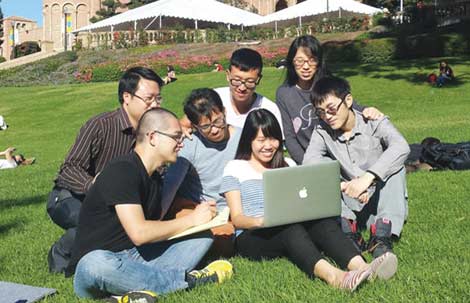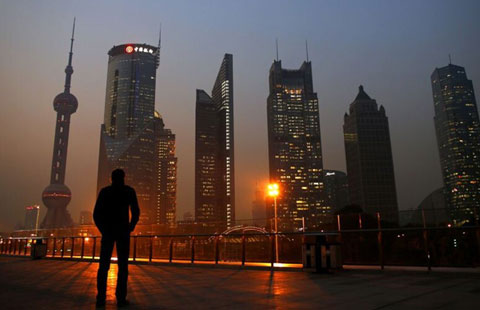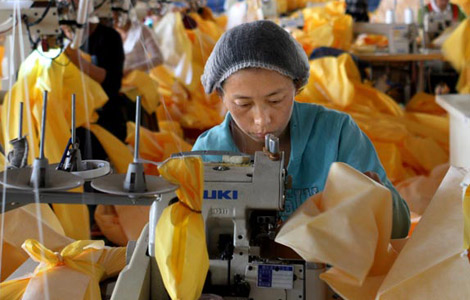China needs to back innovation: investors
Updated: 2014-10-29 11:16
By Lian Zi in San Francisco(China Daily USA)
|
||||||||
China needs to develop a "comprehensive innovation ecosystem", said a venture capitalist speaking at a gathering of Chinese business executives and VCs in San Francisco on Tuesday.
"Silicon Valley creates a great ecosystem and comprehensive support for high-tech companies to grow," said Benjamin Sun of AngelVest, a firm with offices in California and China that invests in several Chinese companies. "That is what we need to learn from Silicon Valley."
Sun said that although some of the high-tech industries in China consider themselves China's Silicon Valley, they don't provide the enterprises with necessary guidance and support, Sun said.
Fifteen executives and venture capitalists from China met with their counterparts in a roundtable hosted by Global Initiatives of the Bay Area Council.
The Chinese delegation was led by Benson Tam, founder and chairman of Venturous, an investment and private wealth management group founded in 2013. Tam is also a legendary venture capital investor in China and one of the earliest investors in Alibaba Group Ltd.
"We could learn a lot from California," he said.
Jim Wunderman, CEO of the Bay Area Council, said California has a lot to offer Chinese enterprises and investors. California has the largest concentration of Chinese people outside China in the world.
Wunderman said California companies are comfortable collaborating with Chinese investors and partners.
More than 85 percent of the angel investor funds in the US go to enterprises in the San Francisco Bay Area, most of which are in software and information technology, Wunderman said.
"China is entering a new phase of growth and development," said TW Liu, CEO of IsoftStone, a China-based technology services firm that provides planning and other solutions to more than 30 cities in China.
Urbanization in China, which will focus on reducing economic disparities between urban and rural residents, is a key economic-driver, Liu said. Some 675 million people are now living in cities, he said.
Liu quoted Joseph E. Stiglitz, economics professor at Columbia University in New York, who said that China's urbanization and the US high-tech industry would be the two great engines of world economic development in the 21st century.
Sustainable economic growth, improved quality of life, and transformation from city governance to city management are three objectives of promoting smart city development, Liu said.
zilian@chinadailyusa.com

 Two Chinese universities make top 100
Two Chinese universities make top 100
 10 predictions for China's economy in 2015
10 predictions for China's economy in 2015
 Rockets spoil Lakers' opener in 108-90 rout
Rockets spoil Lakers' opener in 108-90 rout
 Six tips for avoiding Ebola
Six tips for avoiding Ebola
 US rocket explodes seconds after launch
US rocket explodes seconds after launch
 China factory well suited to help in Ebola fight
China factory well suited to help in Ebola fight
 A 'floating city' in East China
A 'floating city' in East China
 ZTE to be NY Knicks' smartphone sponsor
ZTE to be NY Knicks' smartphone sponsor
Most Viewed
Editor's Picks

|

|

|

|

|

|
Today's Top News
Cook and Ma talk about partnership
Language a barrier to healthcare for Asian Americans
China businesses need innovation: VC
Security pact sealed with Afghanistan
Chinese-American runs for Maryland state Senate
Language now a barrier to healthcare
China needs to back innovation: investors
Lee makes run for state Senate
US Weekly

|

|







